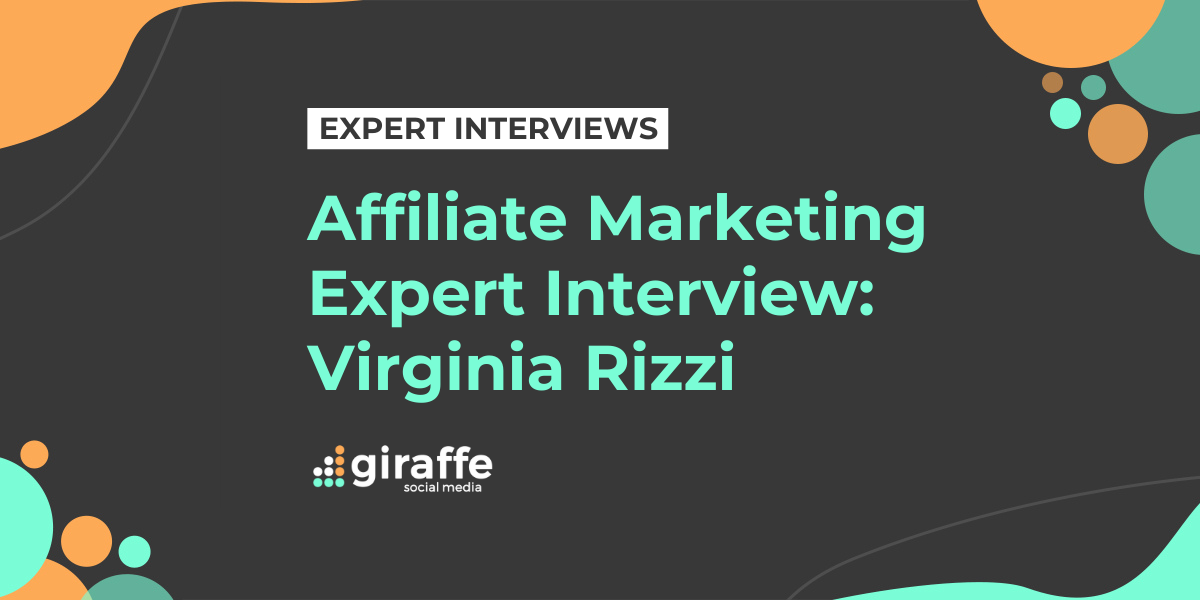 Debika Sihi is an Assistant Professor of Business at Southwestern University. She earned her PhD in Marketing at the McCombs School of Business at The University of Texas (UT) at Austin. She also holds a BBA and MPA (Masters in Professional Accounting) from the McCombs School. We wanted to speak with Debika Sihi, as she loves to research marketing strategy. To be specific, she has researched and published papers on a firm’s strategic use of advertising, social media, and channel management with specific attention to digital marketing. Debika teaches a variety of business courses including classes on digital marketing and a capstone course with a focus on innovation in business. So, clearly – she should get along with us social media geeks just fine! She has earned recognition over the years for her work, examples of which include that she was a finalist in Pennsylvania State University’s prestigious Business Marketing Doctoral Support Award Competition. Debika Sihi was also nominated for the Fred Moore Assistant Instructor Award for Teaching Excellence. Another thing she has in common with us is her love for dogs! Please enjoy our interview with Debika Sihi.
Debika Sihi is an Assistant Professor of Business at Southwestern University. She earned her PhD in Marketing at the McCombs School of Business at The University of Texas (UT) at Austin. She also holds a BBA and MPA (Masters in Professional Accounting) from the McCombs School. We wanted to speak with Debika Sihi, as she loves to research marketing strategy. To be specific, she has researched and published papers on a firm’s strategic use of advertising, social media, and channel management with specific attention to digital marketing. Debika teaches a variety of business courses including classes on digital marketing and a capstone course with a focus on innovation in business. So, clearly – she should get along with us social media geeks just fine! She has earned recognition over the years for her work, examples of which include that she was a finalist in Pennsylvania State University’s prestigious Business Marketing Doctoral Support Award Competition. Debika Sihi was also nominated for the Fred Moore Assistant Instructor Award for Teaching Excellence. Another thing she has in common with us is her love for dogs! Please enjoy our interview with Debika Sihi.
Talk us through a typical day for you…
On a typical day, I get up pretty early in the morning. I like to get to work early so I have some time to read the news, answer emails, and drink coffee (well a flat white which is probably equal parts coffee and foam). Morning is also my best writing time, so I usually spend a little time working on a research project which is in the writing stage. Then I teach two or three classes (depending on the semester) followed by office hours and meetings. I have amazing students who meet with me, ask great questions and offer fantastic ideas. They are easily the best part of my job! My day at the university usually extends into the late afternoon/early evening. Then I drive home, usually listening to a podcast (my favorites are “How I Built This” and “Presidential”-a great friend clued me in about this one). I have dinner, spend time with family, and usually watch a television show (I love shows on Netflix!) to unwind. Then I spend some time working on material for my classes and research projects before I go to bed and start over. On days when I have a later start in the morning, I spend time running/throwing a ball with the best dog in the world.
How did you get into marketing?
I actually started my career in public accounting. Most of the clients I worked with were technology clients who had strong brands and other market-based assets. Given my accounting background, I was interested in better understanding the valuation of such assets which brought me to graduate school in marketing. My research interests have since evolved a bit. A lot of the research I work on now is shaped by the knowledge I have gained from wonderful industry partners and through a deeper examination of research literatures from different domains (management information systems, management, computer science). The questions I grapple with most often are less focused on valuation but rather examine how technological change and disruption impact organizations in how they deliver products and services to customers and how they manage customer relationships.
Do you have a favourite social network – why is it your favourite?
I think you can classify social networks in many ways, the nature of the content disseminated (e.g., more visual versus more textually based), the nature of the connections (e.g., more personal versus professional), whether it is used more for broadcasting versus interaction, and many other ways. My favorite network, right now (because I think this evolves as platforms change and new networks appear), is LinkedIn. I think it provides an effective forum to not only make professional connections across industries but also for idea generation and sharing.
Where do you get your latest marketing news and tips from?
I regularly read articles from Ad Age, Campaign, Fast Company, and the Wall Street Journal (they have a CMO section and you can subscribe for weekly marketing updates). I also love to read TechCrunch because this often provides more technical insights on marketing issues.
Given your recent project, what impact do you believe VR and AR will have on how we market to consumers?
I think VR and AR have the potential to transform experiences for consumers in so many ways. Virtual reality (VR) which involves immersion into a virtual environment offers consumers the ability to “try” both experiences and products prior to purchase. Current applications include vacations, home tours, and automobiles test-drives. Going one step further, these virtual experiences are becoming monetized products themselves. Other applications include large-scale training of sales forces without the cost of physical classroom training. I believe augmented reality (AR) has tremendous potential in post-purchase service. For example, instructional guides for complex products that include AR features can make product assembly (think Ikea) or repair much easier for a consumer or repair professional, resulting in greater consumer satisfaction.
What one piece of advice would you give a small business owner looking to market their business?
I think the first step is always to understand your consumer base. At the core of every strong marketing campaign is a deep understanding of the consumer. I would ask the business owner to think about a typical day in a target consumer’s life-how does this individual get information, what does she do on a day to day basis, what are her habits? Understanding consumers’ behaviors and preferences will help the business owner connect with customers in meaningful rather than intrusive ways.
What’s the best book on marketing you’ve ever read? What lessons did you take away from it?
I read Groundswell, by Charlene Li and Josh Bernoff, when it first came out. This book clearly describes the power of “people empowered by technology” (Li and Bernoff, 2011, pg. 5). The authors highlight changes in the relationships between individuals and organizations with such terrific detail. It greatly impacted how I viewed the role of consumers who have become collaborators and innovators alongside organizations.
Do you have a favourite marketing campaign of recent years? What was it and why does it stick in the memory?
Seven or eight years ago Google released several ads that connected their different technology products with personal stories. One of the ads was “Dear Sophie” in which a dad emails (“gmails”) his daughter throughout her life from the day she is born. In “Google Circles Love Story,” Lisa and Kyle tell their love story from the perspective of Google Circles. Finally, my favorite is “Jess Time” in which a daughter goes to college, after her mom has passed away, and connects with her dad through the web. These campaigns, whether you believed the message or not, offer a glimpse at how technology can be used to maintain relationships and connections rather than replace them. I just watched these ads again on YouTube and shed a few tears. I admit a sweet story or anything focused on kindness will likely elicit some tears from me; I am a self-confessed crier. However, if an ad about an Internet browser or email service can strike an emotional chord, then I think Google (and its partner ad agencies) has done an effective job.
What advice would you give a business owner who is stepping into the world of social media for the first time?
I would ask the business owner (1) to first define their goal for using social media (is it brand awareness, it is to engage with customers, is it to drive users to a website, are there multiple objectives?), (2) to really understand how their particular customer base/s uses social media, and (3) to research different social media platforms. For (3), I think it is important to conduct research on how similar and aspirational businesses are engaging with social media to learn some best and “not-so-best” practices. Social media is fantastic for customer engagement and interaction. However, missteps and mistakes have the potential to be shared quite easily (and live on in the web), so some due diligence up front can be helpful.
In three words; describe the future of marketing.
Responsive, Data-driven, Immersive.







